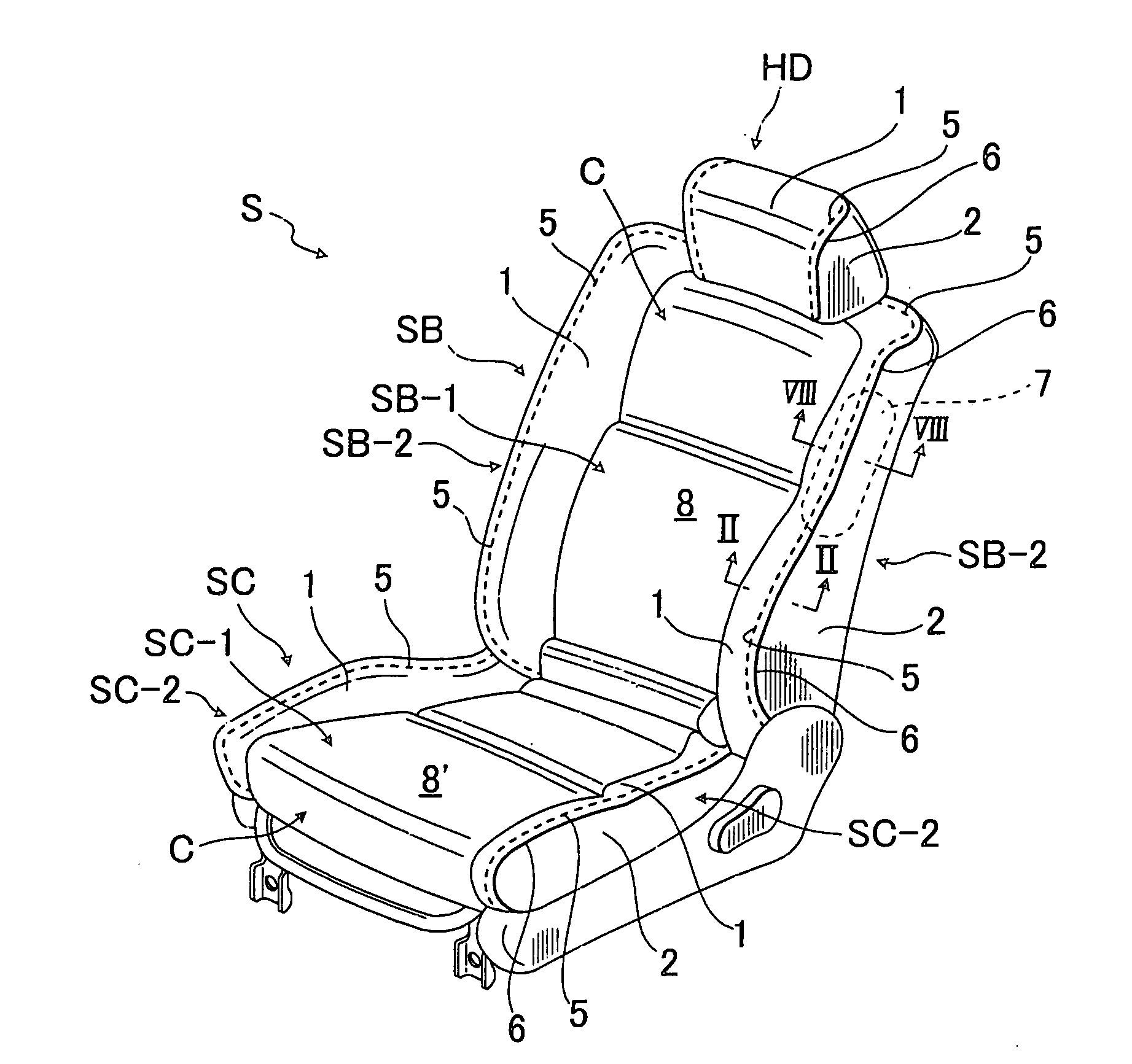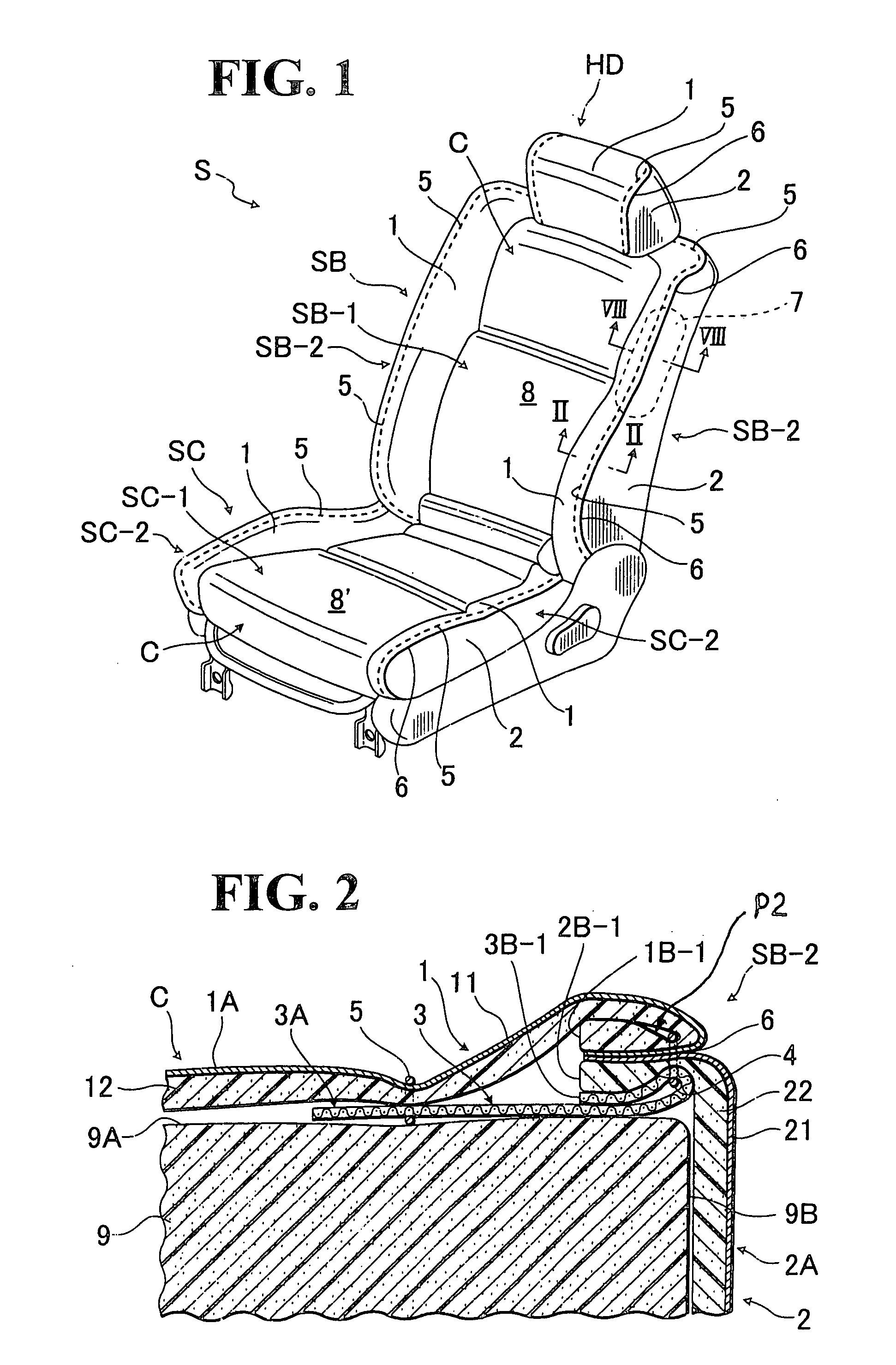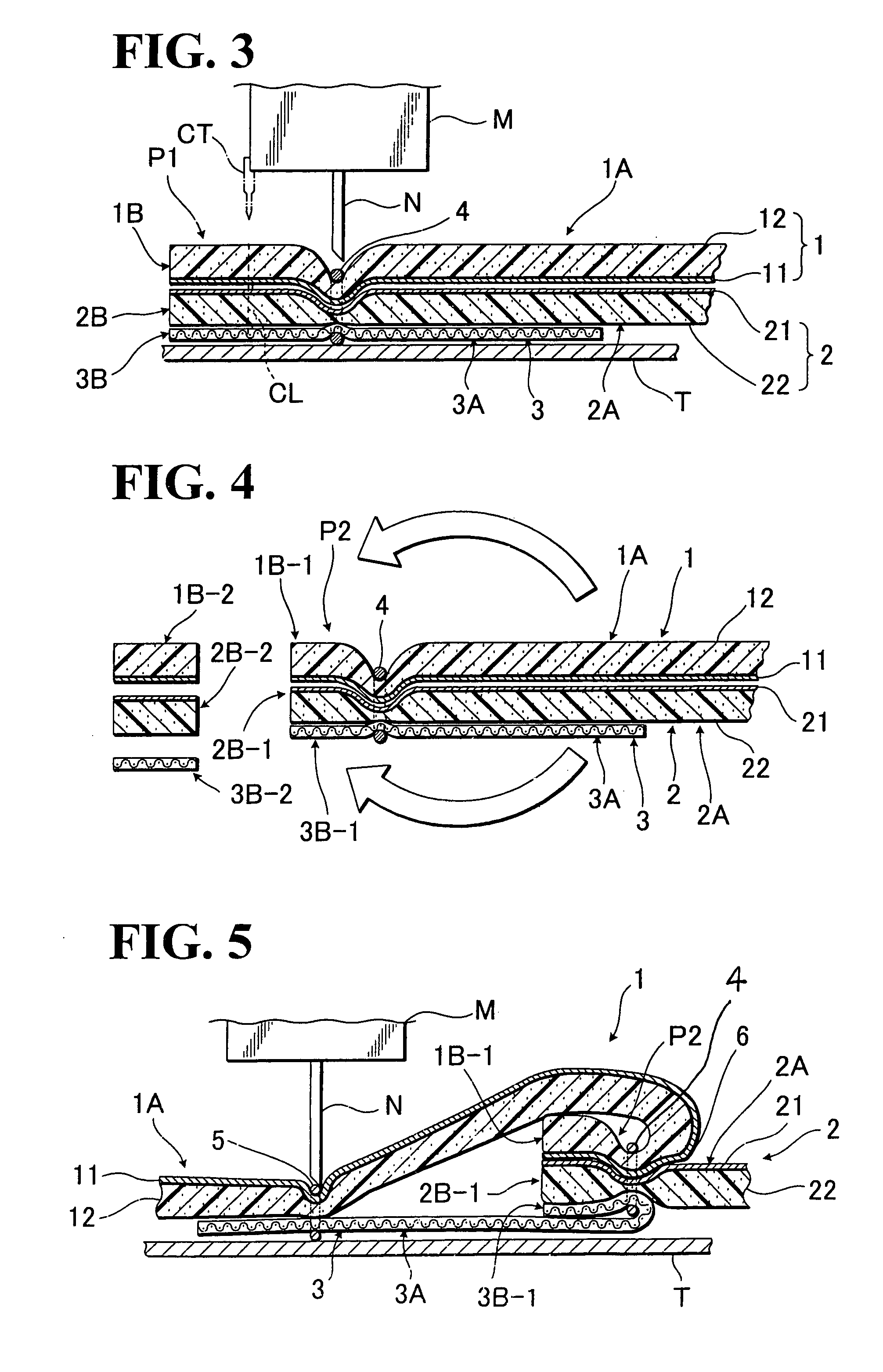Sewing method to form a trim cover assembly and automotive seat using the trim cover assembly
a technology of automotive seats and trim covers, which is applied in the direction of sewing apparatus, textiles and papermaking, vehicle arrangements, etc., can solve the problems of unfavorable interior design, inconvenient assembly of trim covers, and inability to neatly bend a small local part of the material, so as to improve the outer appearance of the seat aesthetically
- Summary
- Abstract
- Description
- Claims
- Application Information
AI Technical Summary
Benefits of technology
Problems solved by technology
Method used
Image
Examples
Embodiment Construction
[0038]FIG. 1, 2 and 8 illustrate one exemplary mode of automotive seat (S) with a headrest (HD) provided thereon in accordance with the present invention, wherein both automotive seat (S) and headrest (HD) include a novel trim cover assembly generally designated by (C). FIGS. 3 to 7 show sewing processes for forming the trim cover assembly (C) in accordance with the present invention.
[0039] The illustrated seat (S) comprises a seat back (SB) and a seat cushion (SC). As shown in FIG. 1, the seat back (SB) is basically formed by a main backrest portion (SB-1) and a pair of lateral bolster portions (SB-2), and likewise, the seat cushion (SC) is basically formed by a main seating portion (SC-1) and a pair of lateral bolster portions (SC-2).
[0040] As far as the seat back (SB) is concerned, referring to FIG. 1, the trim cover assembly (C) covering the seat back (SB) comprises: a first cover material (1); a second cover material (2); and a third cover material (8). The first and second c...
PUM
 Login to View More
Login to View More Abstract
Description
Claims
Application Information
 Login to View More
Login to View More - R&D
- Intellectual Property
- Life Sciences
- Materials
- Tech Scout
- Unparalleled Data Quality
- Higher Quality Content
- 60% Fewer Hallucinations
Browse by: Latest US Patents, China's latest patents, Technical Efficacy Thesaurus, Application Domain, Technology Topic, Popular Technical Reports.
© 2025 PatSnap. All rights reserved.Legal|Privacy policy|Modern Slavery Act Transparency Statement|Sitemap|About US| Contact US: help@patsnap.com



